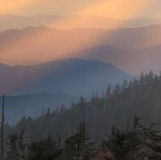 With the rapid increase in deadly mega-fires in California, federal and state governments are turning to indigenous people for solutions. The US Forest Service is now working with the Karuk Tribe to implement prescribed burns to manage the land. Much has been written of their traditional land management practices regarding the use of fire. Redwood National Park has adopted prescribed burns, acknowledging they come “from time immemorial”.
With the rapid increase in deadly mega-fires in California, federal and state governments are turning to indigenous people for solutions. The US Forest Service is now working with the Karuk Tribe to implement prescribed burns to manage the land. Much has been written of their traditional land management practices regarding the use of fire. Redwood National Park has adopted prescribed burns, acknowledging they come “from time immemorial”.
This ancient Karuk story is adapted from Leaf Hillman’s account in a compilation of stories about traditional ecological knowledge (TEK) shared at the annual California Department of Water Resources Tribal Water Summit in 2018.
On the Pacific coast, where the redwood forests rise in waves, ridge upon ridge, from the crashing shoreline, “suddenly there appears a light on the mountain.” Hillman explains, “It’s a fire, actually. It’s not just a little fire; it is a lot of fire. For three days prior, six young men have been on top of the mountain, preparing for the fire. At the moment when darkness sets in, on the darkest night, the fire is pushed off the mountain and rolls down the hill. It sets the entire face of the mountain ablaze.”
In late summer the Karuk repeat this up and down the river.
“These fires burn from that time until the fall rains extinguish them. They burn and they crawl across huge areas of the landscape, creating necessary openings, killing the acorn weevils. At the same time, the inversion from the smoke from all these fires sets into the valleys along the river – cooling the Klamath River by two to three degrees, triggering the fall run of the salmon. “

